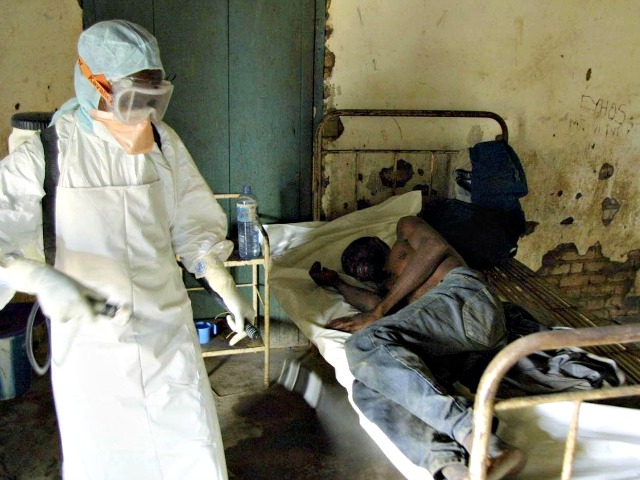The operations director of Médecins Sans Frontières (Doctors Without Borders), Brice de la Vigne, has described the international efforts to stop the spread of the Ebola virus as “almost zero,” arguing that there is a lack of “political will” to stop the virus in West Africa, as most countries are simply working to keep the virus out of their own territories.
According to The Guardian, de la Vigne blasted the commitment of the international community to fighting the virus, claiming little different was being done on the ground in West Africa to prevent the spread of the disease. “Globally, the response of the international community is almost zero,” he said to the newspaper, adding, “Leaders in the west are talking about their own safety and doing things like closing airlines–and not helping anyone else.”
International governmental response has, for the most part, centered around containing the virus in West Africa. A number of Latin American nations, for example, have designated Ebola-only hospitals and screening procedures at airports just in case the virus reaches the continent. In the United States, the focus has been on keeping passengers from West Africa out of the country, and treating U.S. citizens who contracted the virus in Africa.
De la Vigne argues that this is not enough; nations must help contribute to building medical infrastructure in the affected countries–Liberia, Guinea, Sierra Leone, and, to a lesser extent, Nigeria–so that a viral outbreak of this magnitude does not happen again. “The solution is not that complicated but we need to have political will to do so. Time is running against us,” he explained. “But you need very senior people with high profiles, the kind of people who can co-ordinate a response to a million people affected by an earthquake.” He noted that both Liberia and Sierra Leone lost much of their medical infrastructure to civil war in the past decade, in addition to cultural issues that make it difficult for Western medical workers to gain the trust of locals.
De la Vigne is joined by his organization’s president, Dr. Joanne Liu, in calling for greater international assistance against the Ebola outbreak. In an editorial in Time magazine, Liu argues that money alone from the international community will not be enough. “We need medical and emergency relief workers to trace those who may be infected, to educate people about protection measures and to work in treatment centers.” she states. “Many more people are needed in the field, right now.”
Liu notes that the Ebola virus itself is but one problem; the “emergency within an emergency” that is the Ebola panic is also a threat, as it has caused deaths due to malaria and other diseases with similar symptoms. Hospitals will not treat these patients for fear that they may be carrying Ebola. Indeed, the first American death attributable to the Ebola virus, 24-year-old Nathaniel Dennis, did not have Ebola; he died of an unrelated illness after a hospital in Liberia refused to treat him.
The Doctors Without Borders rebuke of the international community’s efforts in Africa follows news from the World Health Organization (WHO) that the current statistics regarding the Ebola outbreak are “vastly underestimated.” This results from long viral incubation periods and a lack of resources on the ground to keep track of infections and deaths. The WHO called the Ebola outbreak an “international health emergency” in a statement earlier this month.

COMMENTS
Please let us know if you're having issues with commenting.